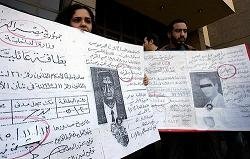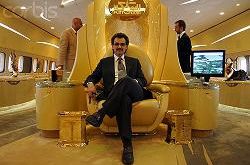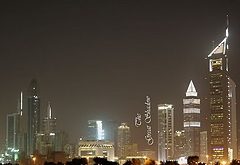David Faris looks at the role bloggers played in the campaign to enable Egypt's tiny Baha'i minority to obtain identity cards without identifying themselves as Muslims or Christians. He traces the links between a handful of Baha'i bloggers, a wider circle of sympathetic activist bloggers and some key people in the mainstream media. He concludes that the sustained online attention which the plight of Baha’is appears to have won in the end made it difficult for the Egyptian government to countenance the continued violation of Baha’i rights.
Read More »no
The Coming Contenders
The Arab world's news duopoly is set for a shake-up, and the main contenders are two ventures that are connected to one of the world's biggest media organizations, Rupert Murdoch's News Corp. Beirut-based journalist Paul Cochrane looks at the latest developments.
Read More »Is the Global Financial Crisis Aggravating Anti-Americanism in the MENA Region? What Arab Media Coverage Suggestsd
Diana Turecek looks at the varied conclusions about the role of the United States that Arab media and commentators have drawn from the global financial crisis.
Read More »Tales of 9/11 – What conspiracy theories in Egypt and the United States tell us about ‘media effects’
Stephen Marmura tries to explain the persistence of mistaken beliefs about 9/11 and about the rationale for invading Iraq among the US and Egyptian publics, concluding that memories and long-term discourses sometimes outweigh short-term media effects.
Read More »Commentary – the move away from big pan-Arab channels
Mourad Haroutunian shares his thoughts on the many reasons why Arab audiences have being moving away from the big pan-Arab news channels towards nation-based television channels, especially those offering sports, movies and other forms of entertainment.
Read More »Commentary – censorship and the Arab Media Forum in Bahrain
Sheyma Buali, after attending the annual Arab Media Forum in Bahrain, comments on the elephant in the room that many participants were reluctant to address
Read More »Cosmopolitan Islamism and its Critics
Maurice Chammah analyzes the thinking behind the Islam-oriented music television channel 4Shbab, noting contradictions in its vision of the interaction between Islam and the West. He looks at the audience which 4Shbab assumes already exists and the audience which it hopes to create, and discusses Western media reactions to the project.
Read More »For the record – US House of Representatives resolution on Middle East broadcasters
The complete text of U.S. House of Representatives resolution 2278, which would penalize satellite providers that contract with broadcasters such as al-Manar and al-Aqsa. The US Senate has not yet acted on the resolution
Read More »Islamic Televangelism: Religion, Media and Visuality in Contemporary Egypt
Yasmin Moll writes on visual aspects of the phenomenon of Islamic televangelism, arguing that: “a consideration of contemporary media practices in Islam invites us to expand our definition of what the visual might be and what acts of seeing might entail.”
Read More »Financial Crisis in the UAE – A Paralysis of Analysis
The financial crisis in the United Arab Emirates has tested the limits of media freedom in the country, and many of the participants, especially government and the media, have fallen short..Sam Potter describes how the local press in the UAE has handled the financial crisis and wonders how long the practice of self-censorship can continue when alternative sources of information are so readily available
Read More » Arab Media & Society The Arab Media Hub
Arab Media & Society The Arab Media Hub







